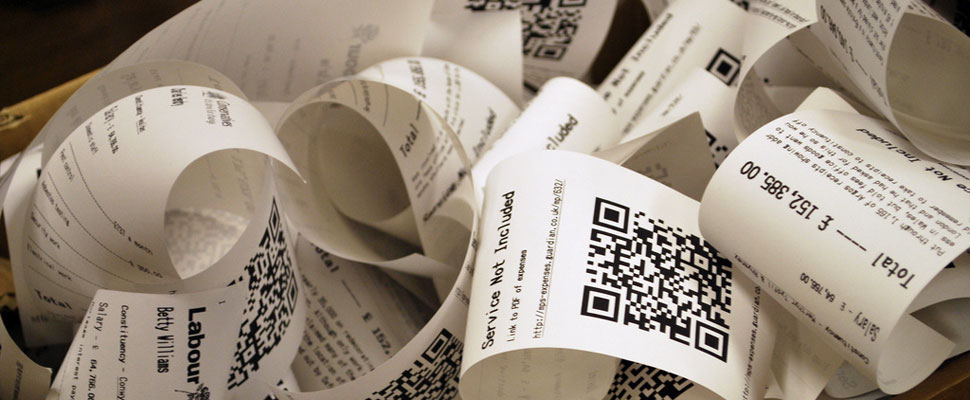Sure, refusing the receipt is a way to save paper and protect the Earth, but did you know that it can also protect your health? According to a study conducted at the University of Missouri, high levels of the controversial chemical Bisphenol A (BPA) are finding a way into our bloodstream whenever we handle thermal paper receipts. In fact, studies show that retail workers carry an average of 30 percent more BPA in their bodies than other adults. Interestingly, subjects who used hand sanitizer or lotions prior to touching a receipt with BPA absorbed 10 times more BPA into their bloodstream.
What is BPA?
Bisphenol A is commonly found in low levels in about 96 percent of Americans, according to the CDC. While these low levels are not proven to harm us, researchers are concerned that elevated levels of BPA can lead to dangerous hormonal and neurological disruptions, due to its ability to interfere with our bodies’ hormones. There is also a study suggesting that BPA can activate breast cancer cells. Many companies have eliminated BPA from their plastics due to research showing it can damage women’s fertility and possibly pose a threat to young children. Exposure to BPA during pregnancy has also been proven to put babies at risk for diabetes and heart disease later in life.
Why is BPA on receipts?
Unless indicated as BPA-free, BPA is found on many products, including plastic bottles, food containers and metal cans. Thermal receipts use BPA, or its chemical cousin Bisphenol S (BPS), as a developer. In order to determine whether or not your receipt is thermal, try rubbing it with a coin. Friction will change the color of a thermal receipt, unlike normal paper.
What should I do?
BPA may not be on receipts forever. The U.S. Environmental Protection Agency has created a program to evaluate the safety and availability of alternatives to BPA in thermal paper. Environmental Working Group, an organization dedicated to protecting human health and the environment, urges retailers to use paperless e-receipts, as well as encouraging them to make make public whatever alternative chemicals they choose to use.
You’re probably often asked, “Would you like your receipt in your hand or in the bag?” If you absolutely need a receipt for your records, opt for the bag. Whenever there is an option for an e-receipt, take advantage of it. Always make sure that you wash your hands after handling thermal receipt and avoid placing them in bags with raw food items. In the event that you don’t need a receipt, leave it. If possible, ask the cashier not to print it to avoid the waste of paper. Want even more info on what you can do? Here are even more tips on minimizing your exposure to BPA via receipts.
